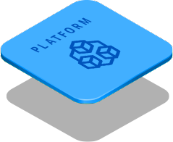State governments are continually seeking efficient solutions to streamline liquor license issuance and management. The complexities of processing applications, ensuring compliance, and maintaining transparency can often bog down traditional methods. However, technological advancements, specifically through specialized licensing and permitting software solutions, offer a transformative alternative.
Effective liquor license management software not only automates tedious administrative tasks. It also improves accuracy and transparency in the process. These tools enable state agencies to standardize workflows, reduce processing times, and provide real-time insights into application statuses. Moreover, they ensure robust compliance with regulatory requirements, safeguarding against errors and enhancing overall operational efficiency.
Common Issues in Traditional Liquor License Issuance
Traditional liquor license issuance processes often face several challenges hindering efficiency and effectiveness. One common issue is the extensive paperwork involved, leading to delays and errors in processing applications.
Manual data entry and document handling consume valuable time and increase the likelihood of inaccuracies, requiring additional resources for verification and correction. This manual approach also lacks transparency, making it difficult for applicants to track the status of their applications.

Another significant challenge is the complexity of compliance with varying state and local regulations. Navigating the intricate web of licensing laws, zoning ordinances, and community approvals can be daunting for applicants and regulatory agencies.
This complexity often results in misunderstandings, disputes, and delays in the approval process. Furthermore, the subjective nature of some regulatory decisions can introduce inconsistencies in application reviews, impacting fairness and trust in the licensing system.
Moreover, traditional liquor license issuance processes may struggle with outdated technology and infrastructure. Many state agencies still rely on legacy systems not equipped to handle modern demands for efficiency and transparency.
These systems may lack integration capabilities, making sharing data across departments or with external stakeholders challenging. As a result, communication bottlenecks and operational inefficiencies can arise, further complicating the licensing process and hindering overall productivity.
Addressing these issues requires a comprehensive approach to modernizing liquor license issuance, including adopting specialized software solutions that streamline workflows, enhance compliance, and improve transparency.
Selecting the Right License Management Software
When selecting liquor license management software, businesses should prioritize several key features. Scalability is crucial, as the software must accommodate growth and handle increasing volumes of applications. User-friendliness ensures that applicants and administrators can easily navigate the system, reducing training time and errors.
Integration capabilities are also essential. The software should seamlessly connect with existing systems, such as accounting and compliance tools. This integration streamlines workflows and ensures data consistency across platforms. Additionally, look for software that offers real-time updates and notifications to keep all stakeholders informed.
Automating Workflows for Faster Liquor License Processing
Automating workflows is a cornerstone of modernizing liquor license processing for state governments. By implementing specialized software solutions, states can significantly reduce the time and effort spent on manual tasks such as data entry, application routing, and approval tracking.

These software tools streamline the entire process from start to finish, ensuring that each step is seamlessly integrated and efficiently managed. Automated workflows not only accelerate processing times but also minimize human error, thereby improving the accuracy and reliability of license issuance.
With automated workflows in place, state agencies can handle higher volumes of liquor license applications without compromising on quality or compliance. The software systematically routes applications, notifies stakeholders of pending actions, and provides real-time updates on application statuses.
This enhances applicants' transparency and increases accountability within the licensing process. By leveraging automation, state governments can achieve greater operational efficiency, meet growing demands, and deliver faster and more responsive service to businesses and individuals seeking liquor licenses.
Enhancing User Experience for Applicants and Administrators
Software solutions enhance the user experience for both applicants and administrators. Intuitive interfaces make it easy to navigate the system, reducing the learning curve. Real-time updates keep all parties informed about the status of applications, eliminating the need for constant follow-ups.
For example, a dashboard that displays application progress in real time allows applicants to see exactly where they are in the process. This transparency reduces anxiety and improves satisfaction. Administrators benefit from features like automated document tracking and instant notifications, which streamline their workflow.
Efficient communication channels are another key feature. Integrated messaging systems enable direct communication between applicants and administrators, resolving issues quickly. Additionally, user-friendly features such as drag-and-drop document uploads and pre-filled forms simplify the application process, making it more efficient and less error-prone.
Ensuring Robust Data Security and Compliance
Data security and compliance are critical in liquor license management software. Businesses must protect sensitive information and adhere to state regulations. Robust security features, such as encryption and access controls, ensure data integrity and confidentiality.
Encryption safeguards data during transmission and storage, preventing unauthorized access. Access controls restrict data access to authorized personnel only, reducing the risk of internal breaches. These measures are essential for maintaining trust and compliance with legal requirements.
Automated compliance tracking is another vital feature. The software can monitor regulatory changes and update processes accordingly. This ensures that businesses remain compliant without manual intervention. Additionally, audit trails provide a transparent record of all actions taken, aiding in regulatory audits and internal reviews. Businesses can mitigate risks by prioritizing data security and compliance and focus on their core operations.
Boost Your Liquor License Management Efficiency Today
Liquor license management software offers significant benefits for businesses. It streamlines processes, reducing approval times and minimizing errors. Enhanced user experiences for both applicants and administrators improve efficiency and satisfaction. Robust data security and compliance features protect sensitive information and ensure regulatory adherence.
These software solutions provide a clear path forward by addressing the initial question of navigating complex state liquor license processes. As technology advances, the future of liquor license management will likely see even greater automation and integration, further simplifying the business process. Explore how our software solutions can transform your state's liquor license processes. Contact us to schedule a demo and see the benefits firsthand.


